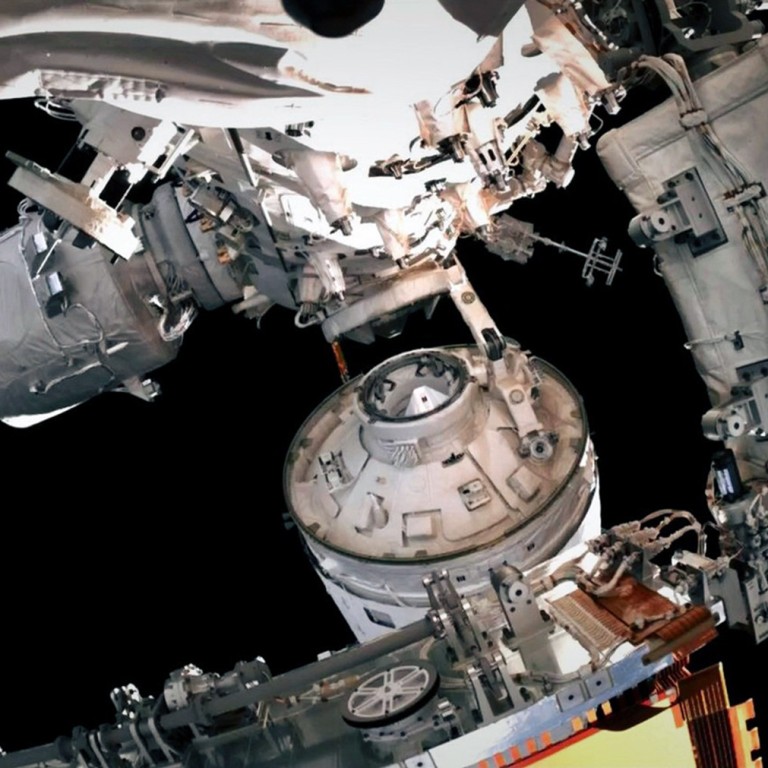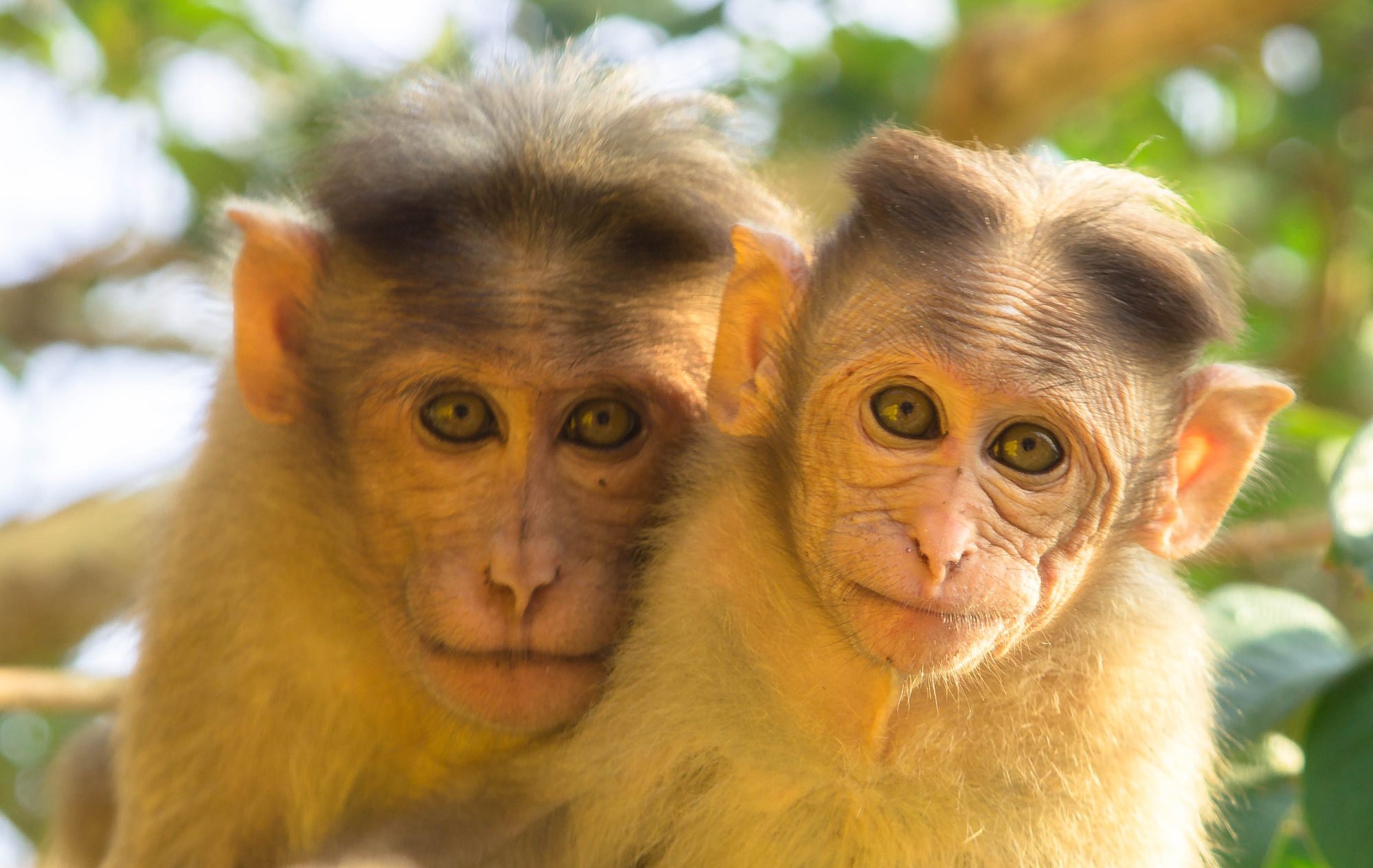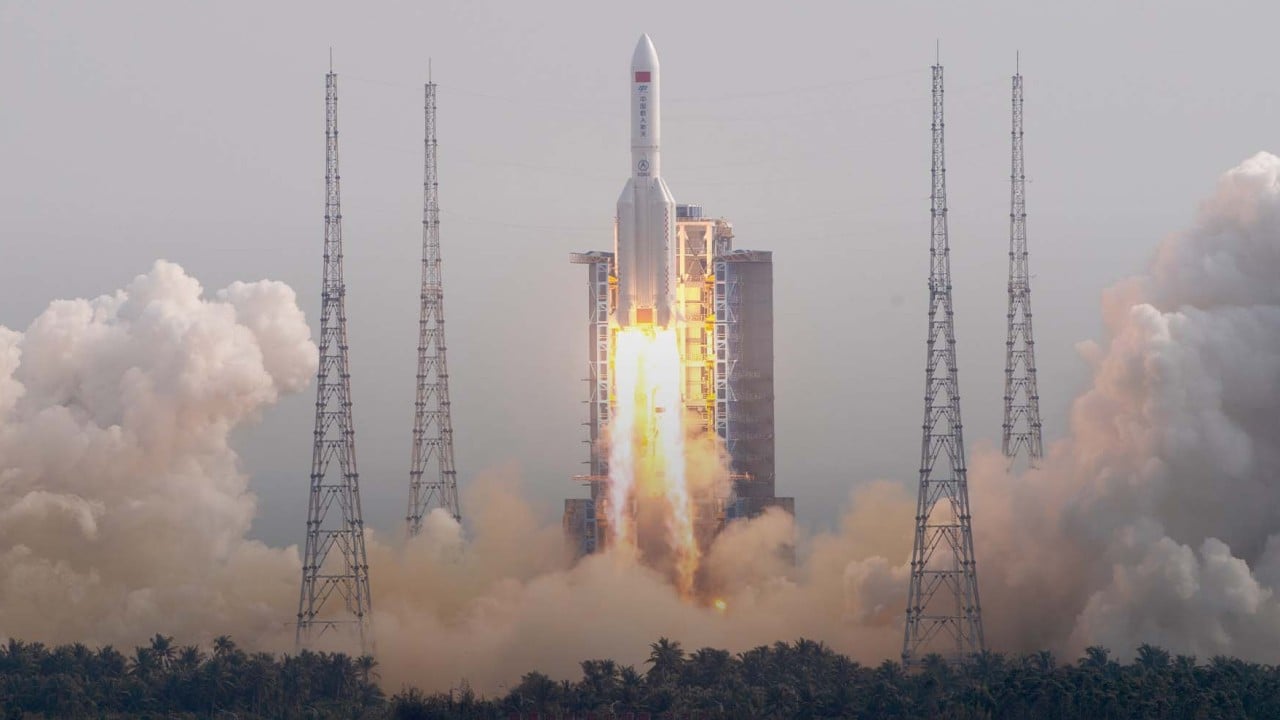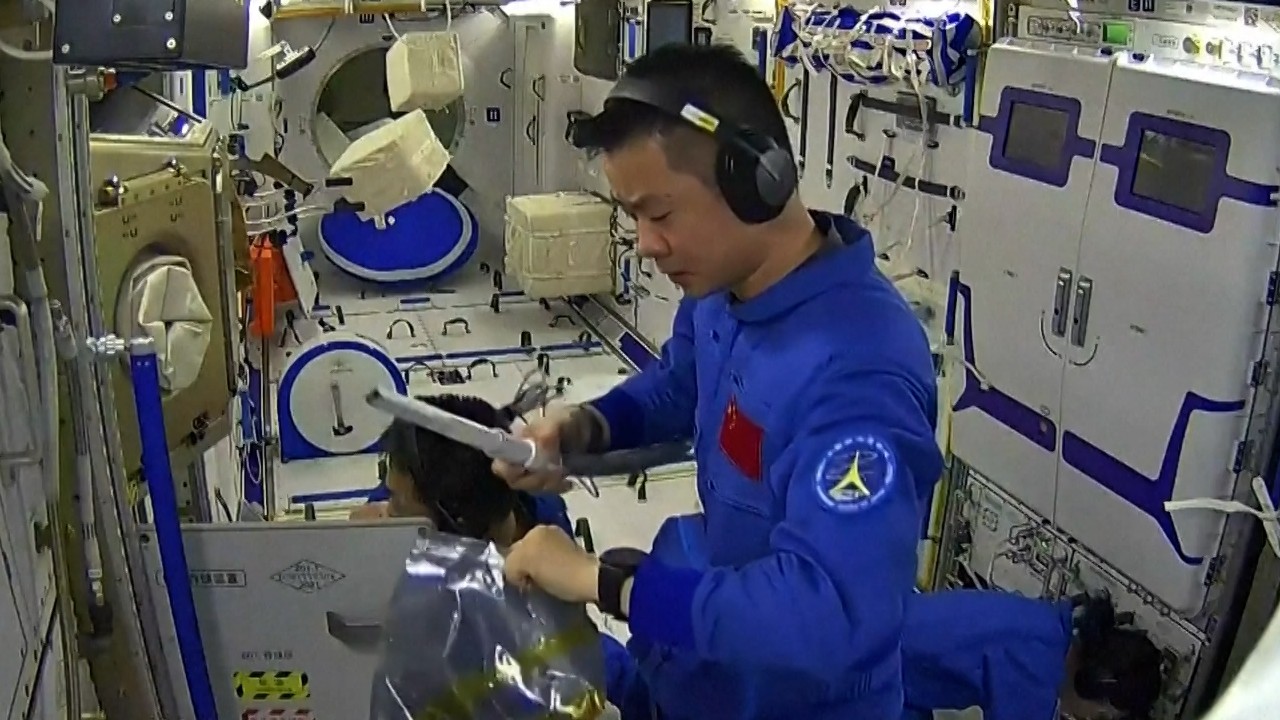
Chinese scientists plan monkey reproduction experiment in space station
- Whether monkeys will cooperate is uncertain, says Shanghai scientist who has used them in experiments
- Space station’s Wentian module has two biological test cabinets that are expandable and reconfigurable
Chinese astronauts on the country’s new space station will perform a reproductive experiment using monkeys, according to a scientist involved in the project.
China’s space station takes final shape with arrival of Mengtian module
The module’s two biological test cabinets currently have only enough room for algae, fish or snails, but they are expandable and reconfigurable.
After studying smaller creatures, “some studies involving mice and macaques will be carried out to see how they grow or even reproduce in space”, Zhang said in a speech posted on social media by the academy on Monday.
“These experiments will help improve our understanding of an organism’s adaptation to microgravity and other space environments.”
Kehkooi Kee, a professor with the school of medicine at Tsinghua University who led an in-orbit stem cell experiment conducted by Chinese astronauts, said the challenges of a life sciences experiment in space increased exponentially with the size of the animals used.
“The astronauts will need to feed them and deal with the waste,” he said.
But larger animals, especially the monkeys, shared more similarities with humans.
As more nations plan for long-term settlements in orbit around the moon or Mars, “these experiments will be necessary”, Kee said.
Whether humans could breed in space is a question that has been pondered for decades.
Almost 50 experts in Hong Kong apply for chance to join Chinese space mission
The United States’ Endeavour space shuttle flew a married couple, Jan Davis and Mark Lee, to the International Space Station in 1992. But Nasa says no astronauts, to the best of its knowledge, have had sex in space.
Adam Watkins, an associate professor of reproductive and developmental physiology at the University of Nottingham in the United Kingdom, said such docking manoeuvres were more difficult than most people imagined.
“Firstly, just staying in close contact with each other under zero gravity is hard,” Watkins said in a letter to Physiology News Magazine in 2020. “Secondly, as astronauts experience lower blood pressure while in space, maintaining erections and arousal are more problematic than here on Earth.
“If that’s not enough, then the sheer lack of privacy on shuttles and spacecraft means there are no rooms into which two astronauts can retreat for some time together.”
During the Cold War, scientists from the former Soviet Union managed to get a few mice to overcome the physical challenges and engage in intercourse during an 18-day space flight. There were signs of pregnancy in some, but none gave birth after returning to Earth.

The researchers suspected that long-term exposure to cosmic rays, which are hundreds of times stronger in orbit than on Earth, could hurt the quality of sperm and eggs.
Some ground experiments also suggested the absence of gravity could damage testicles and some other reproductive organs, leading to a significant decline in the sex hormone levels of test animals.
But other studies produced more positive results. Long-term health monitoring data collected on the ISS found that testosterone levels dropped near a launch or return mission, but the readings remained normal most of the time the astronauts were in orbit.
How dried passion fruit inspired Chinese device that may clean up space junk
A Nasa experiment on the ISS found that gravity changes and radiation had little impact on human sperm.
But whether monkeys would cooperate remained uncertain, according to a Shanghai-based life scientist who has used them in experiments.
Although laboratory monkeys were raised in cages, long-time confinement in a small space could cause some negative responses such as reduced activity, hair pulling or refusing to eat, said the researcher, who requested anonymity.
The rocket ride to the space station could also frighten the monkeys.
“On the ground it is possible to calm a monkey in panic with toys, music or simply letting them mingle with other monkeys,” she said. “How to take care of the monkeys and keep them happy and comfortable will be a new challenge to the astronauts.”
China is currently the only nation operating its own space station.
The Earth satellite project bringing Chinese, US and Russian space scientists together
The Chinese space station can host up to six astronauts in private quarters.
Tiangong, which means heavenly palace, is expected to be the largest human outpost in near-Earth orbit after the retirement of the ISS in the next few years.



